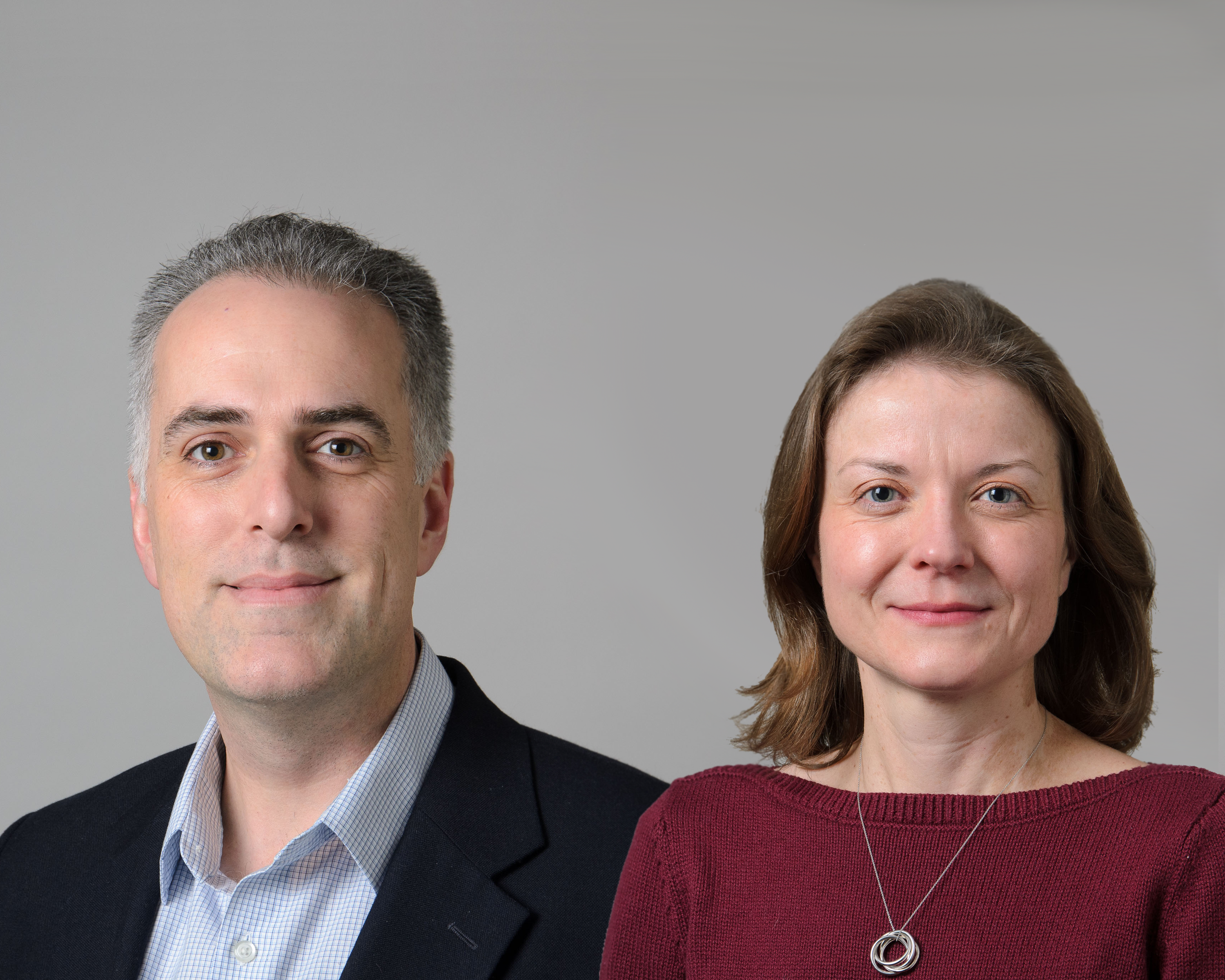She’s a psychologist who’s examining health disparities in underserved populations, who’s also looking at the impact of mindfulness on health behaviors and the experience of pain, and who won an award in 2017 for her mentoring of undergraduate students.
He’s a neuroscientist serving as the new director of the Center for Advancement in Managing Pain (CAMP) who won an outstanding researcher award in 2019 and is looking at ways to address acute pain.
Recent transplants from West Virginia, Natalie Shook and Steven Kinsey have brought their collaborative approaches to research and their interactive styles of teaching to the lab and the classroom as the UConn School of Nursing’s newest faculty members.
They’re also married, with two young children, and with diverse backgrounds of study and work that they hope will complement the expertise that the School of Nursing has already developed.
“Everything we do has to come around to health and improving lives in some way,” said Kinsey, who studies opioid and cannabinoid systems and how they control pain, inflammation, and stress response. While not from a nursing background, Kinsey sees his work – and the potential to make an impact, particularly in pain management – fitting closely with nursing’s philosophy and goals.
“I see us all as this continuum, and we’re asking questions just at kind of a different level,” he said. “Our goal really is to help reduce suffering, and it’s a lofty, broad goal, but it helps on the hard days to really hope that what we’re doing is going to contribute positively.”
Shook’s work in social psychology has, in recent years, delved more deeply into health domains, making the School of Nursing a natural fit for her research, she said, due to the many implications for health care providers and especially nurses, who often serve as the front lines of patient care.
“When we’re thinking about health disparities, one of the big issues that we have is that experience of discrimination, or at least the perception of discrimination,” she said. “We’ve got data to indicate that these underrepresented groups will delay seeking healthcare because of the perception that the health care providers may have some bias — whether explicit or implicit – but that will lead to forms of discrimination and just unpleasant experiences. Then, when they finally do seek help, it’s more severe, more problematic.”
Shook said that there are a lot of ways that her work could help to inform teaching and the day-to-day experience of practicing nurses, nursing students, and other faculty.
“A couple of lines of research that I have in my lab are looking at disease avoidance and immune function,” she said. “When this opportunity arose, it seemed like ideal timing, that being in School of Nursing would facilitate these programs of research. In looking at the faculty here, the sort of the research they’re doing and the patient populations that they’re working with, there seems to be a lot of overlap and ground for collaboration. Having colleagues right next door who have expertise right at hand, it just seemed like it would be a really nice marriage.”
Kinsey is particularly interested in exploring the pain-management potential of cannabinoids, an area where other School of Nursing researchers, particularly CAMP affiliates, are also delving.
“With CAMP, there’s a group of people here that are interested in different aspects of pain,” he said. “Pain is a huge problem. The treatments we have right now are either insufficient or have really bad side effects. Being part of a critical mass of people who are interested in different facets of pain was the big thing that attracted me to the School of Nursing here at UConn.”
In his leadership role at CAMP, Kinsey said he hopes to work as a coordinator – figuring out common goals and then trying to help achieve them. He said that, overall, the opportunity afforded by the UConn School of Nursing to work closely with colleagues was a significant draw for him.
“I have collaborators in different countries, and that’s great, but there’s nothing like being able to have coffee with somebody and have conversations,” Kinsey said. “There’s a feeling of really positive collaboration here at UConn, and a record of people actually doing that and not just talking about it – like, let’s do well together.”
To reach Shook or Kinsey, visit nursing.uconn.edu. For more information about the Kinsey Lab, visit kinsey.lab.uconn.edu.



